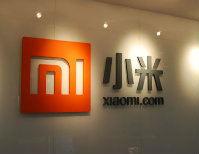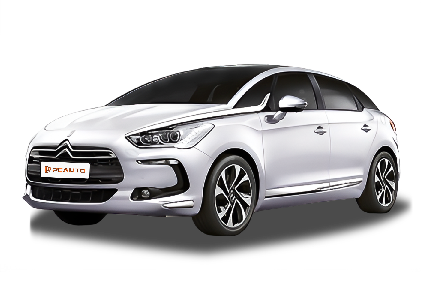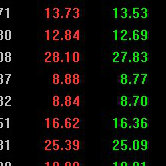Q
What is the problem with the 2018 Citro Ds5?
Common issues reported by Malaysian owners of the 2018 Citroën DS5 include occasional electronic glitches—like laggy infotainment screens or delayed reverse cameras—usually fixable with a quick software update. A small number of units also develop suspension creaks, likely due to rubber components aging faster in our tropical heat; regular checks on chassis bushings are smart preventive care.
Under the hood, DS5's 1.6THP turbo engine demands strict adherence to timing chain and coolant replacement schedules—standard maintenance musts for European turbocharged powerplants here. Local drivers should also keep those sunroof drain holes clear during monsoon season to avoid interior leaks from clogs.
If hunting for a used DS5, prioritize inspecting these systems and insist on full service records. Despite these quirks, the DS5 delivers distinctive French luxury and engaging driving dynamics that still make it worthwhile when properly maintained. Its standout aviation-inspired cockpit design and eco-friendly interior materials remain unique selling points in its segment.
Special Disclaimer: This content is published by users and does not represent the views or position of PCauto.
Related Q&A
Q
When was the DS 5 discontinued?
The DS 5 is a premium crossover from French luxury marque DS Automobiles (originally under Citroën). Production wrapped up in 2018, mainly due to a brand strategy shift that refocused resources on new energy vehicles and SUVs better aligned with market demands – think subsequent models like the DS 7 Crossback. Stylistically, the DS 5 blended coupe and MPV elements, prioritizing a luxurious feel and tech-forward features. It even packed the advanced Hybrid4 diesel hybrid system back in the day, showing the brand's early exploration into green technology.
For the Malaysian market, the DS 5 never got an official launch. However, local consumers could still get their hands on one through parallel import channels. Its unique design and that distinct French luxury vibe still managed to attract a niche following of enthusiasts.
These days, DS is doubling down on electrification, rolling out fully electric models like the DS 3 E-Tense. If Malaysian folks have their eye on the DS brand, keeping tabs on their global new releases or checking in with local authorized dealers would be the way to go.
Q
How much is Citroen DS5 in Malaysia?
In Malaysia right now, the price of a brand-new Citroën DS5 can vary a bit depending on the trim level and any ongoing promotions. Generally speaking, you're looking at a ballpark figure between RM150,000 and RM180,000. For the most up-to-date and accurate pricing, though, your best bet is to hit up Citroën Malaysia's official dealers or authorized agents directly.
The DS5, as Citroën's premium offering, has carved out a niche with its head-turning design and comfortable ride. It's got that certain appeal for folks who appreciate a bit of flair. Step inside, and you'll find a cabin kitted out with quality materials and some nifty tech, like a heads-up display and adaptive cruise control – perfect for buyers who want something that's both stylish and practical.
Now, when you're buying an imported car in Malaysia, it's not just the sticker price you need to think about. There's also the added costs like import duties, insurance, and registration fees, all of which will bump up the final on-the-road price. So make sure you factor those in.
If the DS5 has caught your eye, it might be worth cross-shopping with other European models in the same segment, things like the Peugeot 508 or Volkswagen Passat. That way, you can weigh up your options against your budget and what you really need, and hopefully land on the best fit for you.
Q
What are the common problems with the DS 5?
The DS 5, with its distinctively styled luxury offering, has carved out a niche among Malaysian buyers, though there are a few common issues potential owners should be aware of. First off, the electronics: some drivers have reported occasional lag or blackouts with the infotainment screen. This ties back to system software optimization, so popping into an authorized service center for regular software updates is a smart move.
Then there's the suspension. After some miles, you might start hearing creaks or rattles, and that's largely down to Malaysia's notoriously patchy road conditions taking a toll on suspension components. Keeping an eye on the bushings and shock absorbers with regular inspections is definitely worthwhile.
Another point to note is the 1.6THP engine. At higher mileages, the timing chain can develop a slight stretch. Sticking to scheduled oil changes and using genuine parts, though, goes a long way in preventing that.
It’s also worth mentioning that the DS 5’s unique body shape does mean the rearview mirrors offer a somewhat narrower field of vision. That’s something to keep in mind when navigating Malaysia’s tighter roads.
If you’re looking at a used DS 5, make sure to thoroughly check these areas and verify that the service history is complete.
Sure, these niggles exist, but the DS 5’s exquisite interior design and engaging driving dynamics still give it a unique appeal in its class. As long as you stay on top of regular maintenance, it’s still a car that delivers a solid ownership experience.
Q
Is the Citroen DS5 a good car?
The Citroën DS5 stands out as a uniquely styled vehicle that prioritizes the driving experience, carving out a niche in Malaysia's market among consumers who value individuality and comfort. Its exterior blends coupé-like sleekness with hatchback practicality, featuring fluid lines that exude a futuristic vibe. Step inside, and you're greeted by premium materials and meticulous attention to detail, elevating the overall sense of luxury. Under the hood, the DS5 offers both petrol and diesel options, with select models boasting Hybrid4 technology – a smart balance of performance and fuel efficiency that handles Malaysia's urban jungles and highway stretches with equal ease. Tech-savvy drivers will appreciate the inclusion of adaptive cruise control and lane-keeping assist, which add an extra layer of safety to every journey. That said, as an imported model, potential owners should be aware that maintenance costs in Malaysia might run a bit higher, and some spare parts could have longer lead times. It's definitely worth doing your homework on the after-sales service network before taking the plunge. The DS5 is tailor-made for those who crave distinctive design, cutting-edge tech, and a refined driving feel. If you're drawn to that unique French flair and have the budget to match, it's a solid contender. Plus, in Malaysia's hot and rainy climate, the DS5's air conditioning system and rust-proofing hold up reliably, making it more than capable of handling daily commutes.
Popular Cars
Model Year
Car Compare
Car Photo
Latest Q&A
Q
Are AC filter and cabin filter the same?
Cabin filter and air filter are two automotive components with different functions. Although their names are similar, their objects of action and installation positions are completely different.
The cabin filter is mainly responsible for filtering the air entering the car compartment, intercepting pollutants such as pollen, dust and PM2.5, so as to ensure the breathing health of passengers. It is usually installed behind the passenger glove box or near the air-conditioning air inlet. The materials are mostly activated carbon or electrostatic fiber. It is recommended to replace it every 10,000 kilometers or every six months.
The air filter is used to filter the air entering the engine combustion chamber to prevent sand and dust from damaging precision components such as cylinders. It is generally located in the engine compartment and uses paper filter materials. The replacement interval is about 15,000 kilometers.
Although both are filtering devices, the former is for the health of passengers, while the latter is related to the service life of the engine. They need to be maintained separately during routine maintenance. It is worth noting that vehicles frequently driven in sandy or industrial areas should shorten the replacement interval to ensure filtering efficiency.
Q
Is the air filter and AC filter the same in a car?
The air filter and cabin air filter in a car are two completely different components. Although their names are similar, their functions and structures differ significantly.
The air filter is specifically designed for the engine and is installed in the engine compartment. Its main function is to filter the air entering the combustion chamber to prevent particles such as dust and gravel from damaging the cylinders. Its filtration precision is usually 0.3-5 microns, and the recommended replacement interval is 10,000-20,000 kilometers, or shortened to 5,000 kilometers in dusty environments. If the filter paper turns black or its air permeability deteriorates, it must be replaced immediately.
The cabin air filter is located behind the passenger-side glove box or under the dashboard. It is responsible for purifying the air entering the vehicle interior, capturing PM2.5, pollen, and odors. Activated carbon or HEPA-type filters can further improve filtration efficiency. It is recommended to replace it every 6-12 months or 10,000 kilometers, with particular attention to preventive maintenance before the pollen season or periods of heavy smog.
Their materials also differ: air filters are predominantly paper-based, while cabin air filters may incorporate activated carbon composites or high-efficiency electrostatic fibers. Neglecting the air filter can result in diminished engine performance and higher fuel consumption, whereas a clogged cabin air filter may lead to reduced airflow or unpleasant odors in the cabin. Regular replacement is essential for maintaining vehicle performance and ensuring the well-being of occupants. When selecting replacements, ensure compatibility with your vehicle model and prioritize cabin air filters that comply with the GB/T 32085 standard.
Q
How do I know if my car air filter needs replacing?
To determine whether a car's air filter needs replacement, multiple aspects should be considered. First, inspect the filter element's appearance. A new filter is typically white or light gray; if there are visible black spots, dirt accumulation, or it remains grayish-black after cleaning, this indicates the filter has reached its saturation point and requires immediate replacement. Second, monitor vehicle performance changes. Symptoms like sluggish acceleration, rough engine operation, darker exhaust emissions, or abnormal fuel consumption increases may all stem from restricted airflow due to a clogged filter. Difficulty starting the engine or illumination of the engine warning light also warrants filter inspection.
For different engine types, replacement intervals vary: naturally aspirated engines should have their filters replaced every 15,000-20,000 km or annually, while turbocharged engines - being more sensitive to air quality - require more frequent replacement every 10,000-15,000 km or every 6-12 months. However, actual replacement cycles should be adjusted based on driving conditions; frequent travel on dusty roads necessitates more frequent replacements. If the filter shows any physical damage or deformation, immediate replacement is mandatory regardless of usage duration to maintain optimal engine protection.
Q
Will changing the air filter improve my car's AC?
Replacing the car's air conditioning filter can indeed significantly enhance the performance of the AC system and improve in-vehicle air quality. The primary function of the air conditioning filter is to purify incoming air by trapping harmful particulates such as dust, pollen, and PM2.5. A clogged filter restricts airflow, diminishes cooling/heating efficiency, and may generate unpleasant odors, compromising ride comfort. Regular filter replacement not only restores optimal airflow but also prevents mold formation caused by filter saturation, thereby safeguarding respiratory health. It's advisable to adjust replacement frequency based on driving conditions—for instance, shortening intervals in dusty or humid regions. The standard recommendation is every 10,000-20,000 kilometers or annually. Opting for multi-effect filters with activated carbon layers provides additional exhaust fume and odor absorption, particularly beneficial for urban traffic congestion. DIY filter replacement is straightforward, typically costing between 50-150 Malaysian Ringgit, making it a highly cost-effective maintenance procedure.
Q
What are the signs of a dirty air filter?
The signs of a dirty air filter mainly include three aspects: abnormal engine operation, changes in the filter element's appearance, and decreased vehicle performance. When the filter element is clogged, the engine will experience insufficient air intake, manifesting as sluggish acceleration, weak operation, thick black exhaust, and possibly accompanied by abnormal roaring sounds or increased vibration. Judging from the appearance, a new filter element is usually white or light gray. If it remains gray-black after cleaning the surface dust, or shows obvious dirt, damage, or deformation, immediate replacement is required. Regarding vehicle performance, common indicators include abnormal fuel consumption increase, difficulty in ignition and starting, and the engine light illuminating without apparent cause. Turbocharged engines have higher air quality requirements, so it is recommended to inspect and replace the air filter every 10,000 to 15,000 kilometers or every six months. For naturally aspirated engines, the interval can be extended to 15,000 to 20,000 kilometers or annually. However, frequent driving in dusty environments necessitates shorter maintenance intervals. Regular inspection of the filter element's condition can effectively prevent premature engine wear caused by impurity ingestion. It is advised to perform basic cleaning and maintenance every 5,000 kilometers to ensure optimal filtration efficiency.
View More












Pros
Cons